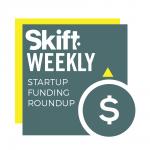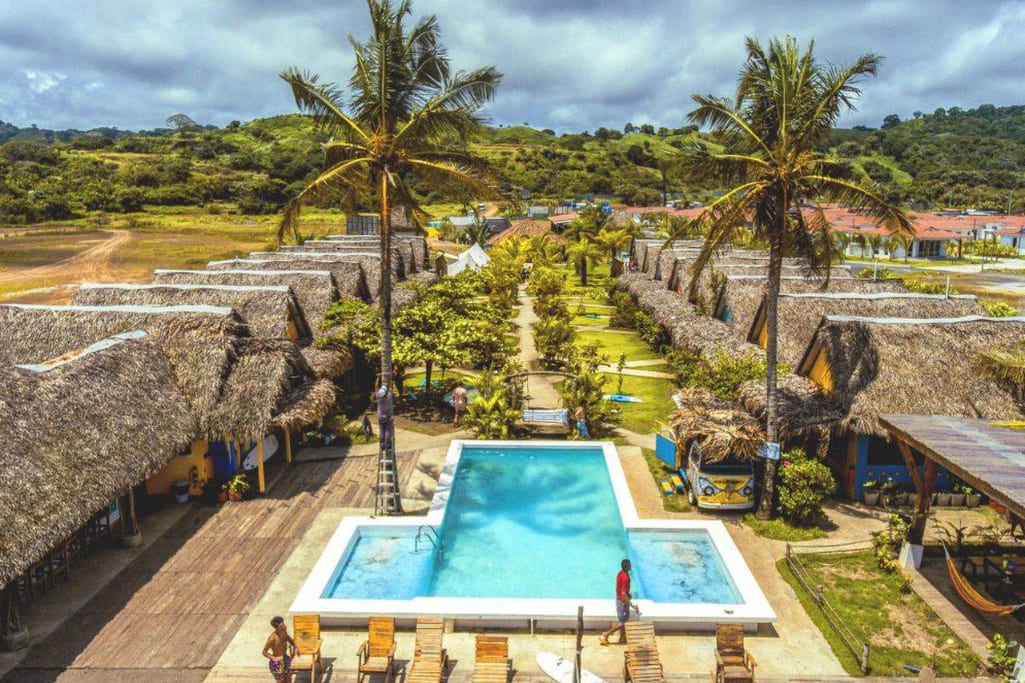Skift Take
This week, travel startups Selina, Battleface, Tuyuan, and Roomy Hotels announced receiving more than $68 million in investment. Airbnb isn't the only startup having a good week.

Travel Startup Funding This Week
Each week we round up travel startups that have recently received or announced funding. Please email Travel Tech Reporter Justin Dawes at [email protected] if you have funding news.
This week, travel startups announced receiving more than $68 million in investment.
>>Selina, a hospitality startup, has been provided a $35 million mezzanine facility from IDB Invest, a member of the Inter-American Development Bank Group, and a $15 million loan from Blue like an Orange Sustainable Capital.
The investment goal is to support the continuity of the Panama-based company’s expansion plans in Latin America and the Caribbean, the organizations said in a statement.
“Upcycling existing inventory into vibrant lodging concepts that feature co-working spaces and highly-amenitized entertainment areas, represents a different value proposition,” said Rogerio Basso, head of tourism of IDB Invest. “The ability to attract foreigners and locals alike makes the concept unique and authentic and contributes to our sustainable tourism development strategy to the region.”
In August, Selina debuted a subscription product to encourage remote workers to hopscotch its hostels and hotels in multiple countries. In October, it announced it had acquired the brand and customer base of Remote Year, the program that moves professionals to a rotating set of global locations.
Selina has previously disclosed raised $225 million in venture equity funding from investors such as Access Industries, Grupo Wiese, and Colony Latam Partners. It had also secured more than $300 million for a real estate investment fund.
>>Battleface, a provider of specialty travel insurance to travelers with non-standard needs, has closed a $12 million Series A financing round from Drive Capital. This investment will be used to establish the startup’s headquarters in Columbus, Ohio, while expanding both business-to-business partnerships with custom-built products for wholesale partners and growing its consumer-direct digital offerings.
This recent raise follows a seed round with investments from Greenlight Re Innovations and Fintech Ventures Fund.
Battleface combines technology with underwriting to create, distribute, and service specialty travel insurance products. CEO Sasha Gainullin formerly developed global operations for AIG Travel Guard. Paul Simmonds, managing director, was previously a Lloyd’s of London underwriter.
Products are backed by insurers and supported by call centers and on-the-ground field agents who provide emergency claims, medical, and travel assistance services worldwide, the company said.
>>Tuyuan, a rural tourism lodging supplier, has closed an approximately $15 million Series A round of funding. SinoOcean Capital led the round. The startup was carved out of China’s homestay giant Tujia, as noted in TravelDaily. It’s specialty is building prefabricated buildings for rural areas to help create villages and camps with amenities like bookstores and cafes that attract tourists. The buildings aim to conserve energy, resist earthquakes, and have reusable characteristics for environmental sustainability.
>>Roomy Hotels, an Islamabad-based startup, has raised a $1 million seed round.
Lakson Venture Capital led the round. Karavan VC and other investors also took part.
Roomy, led by founder and CEO Asad Samar, operates hotels, guest houses, and resorts that are budget-priced. The brand promises online bookings, contactless check-in and check out, and standardized amenities.
Skift Cheat Sheet:
We define a startup as a company formed to test and build a repeatable and scalable business model. Few companies meet that definition. The rare ones that do often attract venture capital. Their funding rounds come in waves.
Seed capital is money used to start a business, often led by angel investors and friends or family.
Series A financing is typically drawn from venture capitalists. The round aims to help a startup’s founders make sure that their product is something that customers truly want to buy.
Series B financing is mainly about venture capitalist firms helping a company grow faster. These fundraising rounds can assist in recruiting skilled workers and developing cost-effective marketing.
Series C financing is ordinarily about helping a company expand, such as through acquisitions. In addition to VCs, hedge funds, investment banks, and private equity firms often participate.
Series D, E and beyond These mainly mature businesses and the funding round may help a company prepare to go public or be acquired. A variety of types of private investors might participate.
The Daily Newsletter
Our daily coverage of the global travel industry. Written by editors and analysts from across Skift’s brands.
Have a confidential tip for Skift? Get in touch
Tags: funding, startups, vcroundup
Photo credit: Selina's property in Playa Venao, Panama, faces Peninsula de Azuero. Selina

